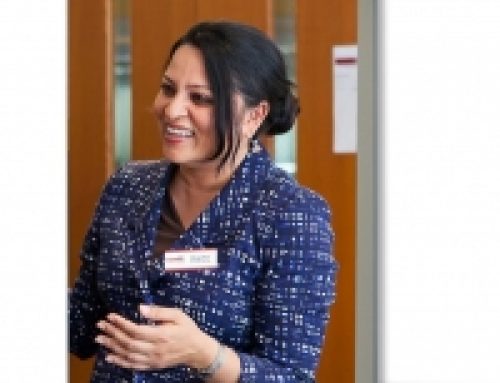Indians at High Risk for Heart Attack
Jasbina Ahluwalia asks Ashish Mathur, Co-Founder and Executive Director of the South Asian Heart Center at El Camino Hospital: That is so inspirational. Those numbers you gave out are astounding, when you say the one in five.
From what you’re saying, I understand that heart attack and diabetes tend to be widespread among Indians. You had mentioned stress and genetics.
What are the reasons for this heightened risk for Indians? What have you discovered about that?
_____
Ashish Mathur
Indians at High Risk for Heart Attack: Genetics
It’s kind of the perfect storm of genetics, lifestyle and the environment that puts us at a higher risk.
Our medical director at the center always says, “The genes load the gun, but the lifestyle pulls the trigger.”
It’s clearly the case with South Asians. It’s truly a combination of fate, chance and choice.
The genetics predisposes you to a higher risk. The environment helps and organization has helped accelerate this for a younger population.
Indians at High Risk for Heart Attack: Lifestyle
The lifestyles that we lead, and predominately two aspects of lifestyle that was found in the inter-heart study, show a significant difference between Indians and others.
This was their sedentary lifestyles, and their being vegetarian but not eating vegetables. There is a grain-based vegetarian diet versus a vegetable-based diet.
We have focused our energy at looking at lifestyle as a way to address this epidemic and to change the course of this epidemic.
For people who are listening to these numbers, is there any test out there that could help them identify or even potentially predict the risk of getting heart disease? Which tests are needed to identify and predict the risk?
Ashish Mathur
Indians at High Risk for Heart Attack: Statistics
One statistic that I want to throw out is that 50% of the heart attacks are not explained with traditional testing, the normal lipid panel, and the cholesterol testing that you do.
They fail to explain 50% of the heart attacks. That is a very large number.
A heart attack is usually the first symptom of something being wrong and very often fatal.
Indians at High Risk for Heart Attack: Twice the Risk
In South Asians, you’re twice as likely to die of a heart attack compared to other ethnicities, and twice as likely to have a recurring heart attack if you survive the first one.
All the odds are put against you and I feel it’s a miracle. It’s been 13 years since my heart attack and I’ve continued to live on and be able to successfully ward off another heart attack.
That’s so interesting. It really is defying some odds, two times as likely to die from a heart attack and three times as likely to have a heart attack recur if one survives one. Did I hear that right?
Ashish Mathur
Indians at High Risk for Heart Attack: Young Age
Exactly. I haven’t even told you about it affecting younger populations.
Twenty-five percent of the heart attacks occur in people less than 40 years of age.
Less than 40, one in four.
Ashish Mathur
It is one in two to adults less than 55 years of age.
That is 25%. Okay.
Ashish Mathur
Yes. In this country, the average age for the first heart attack is 65 years for men and 70 for women.
Indians at High Risk for Heart Attack: Progressive Disease
It’s really a progressive disease in South Asians and occurs much earlier.
I often see fathers bringing their young sons or daughters into the ER with heart attacks. It’s very difficult for a parent to witness a heart attack in a young son or daughter.
That’s what we get to see all the time.
_____
Tell Us:
Indians at High Risk for Heart Attack, have you seen this pattern in your life? Tell us your experiences in the comments section below.
_____
The above is an excerpt from Jasbina’s interview with Ashish Mathur
The entire interview transcript is at: Ashish Mathur NetIP (Network of Indian Professionals) Interview – Heart Diseases and their Prevention Tools for South Asians
Listen to the entire interview on: Intersections Match Talk Radio – Jasbina’s Lifestyle Show
Listen to the entire interview on Blog Talk Radio: NetIP Listen to the entire interview on iTunes _____





